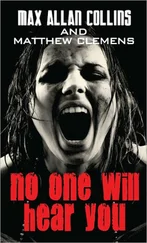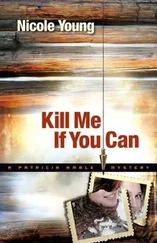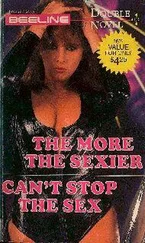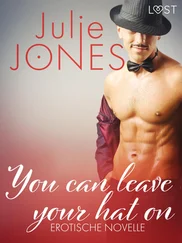Would have been nice to see her — his next message — but there was no reason to push his luck. Harrow had given him a nod, and the Messenger would replay that moment at least once an hour for every hour of every day of the rest of his life.
Following Anderson and the boss into the Pratt PD, Michael Pall had to wonder if the guy who’d held the door for them had been giving him the hairy eyeball. This was not an uncommon thought for him, and wouldn’t have been even before his face and form had been broadcast all across the nation on a top-ten TV show.
He was a handsome guy, in his own considered opinion, and physically fit just didn’t cover it. So gay guys gave him looks, and straight guys envious glances. But also sons of bitches who thought he was short. They gave him looks too, and laughed to themselves, and there wasn’t a damn thing he could do about it, except break them apart in his mind.
The attractive fortyish blonde woman in uniform behind the bulletproof glass of her booth gave them a big goofy smile as the trio trooped in, Arroyo and Ingram trailing, capturing the whole entrance on camera and boom. The only way into the PD proper was through a single door to the right of the booth where the receptionist oversaw the compact lobby.
A phone was the only way to communicate with the booth, and the boss picked it up and said, “Good afternoon.”
The woman, who wore a headset, said something only Harrow could pick up, and he replied, “Yes, ma’am. We’re here to see Chief Walker, that’s right.”
She made a call they couldn’t hear, then said something to Harrow that took a while.
“Sure,” he said into the phone. He turned to Pall and Anderson. “Chief’s expecting us. But before she buzzes us through, there’s an admission price to pay.”
Anderson frowned. “What’s that, sir?”
“She wants our autographs.”
The reception officer, who had a nice smile, passed a torn-off half sheet of report paper with a pen clipped on through the small slot under her window. Her name was Sandra, and they all signed the thing with the felt-tip Harrow carried for such occasions.
Pall wondered for a moment if she’d only asked Harrow for his autograph, and the boss was just being nice to him and Chris, to make them feel important too.
Not that Pall didn’t already have people coming up wanting autographs. Though he’d only been on camera twice, Pall seemed to spend half his days now, signing napkins in restaurants, magazines in drugstores, even a towel in a motel swimming pool when a fan had interrupted him doing laps a couple of days ago.
Whole thing felt weird to Pall, but for now he just followed Harrow’s lead and was always polite, tried to remember to smile, and never talked down to the fans. Seemed to be working.
He was unaware that the scientist side of him was at war with the bodybuilder — the scientist preferring to keep to himself and his colleagues, the bodybuilder wanting to look good and attract admiration, particularly from strangers. What he did know was this: being thrust into the public eye sometimes made him feel like an ant on the sidewalk looking up to see a kid with a magnifying glass.
Police Chief Alton Walker was a lanky fifty or so, with a hawk face and short white hair gone bald at the crown; he stood ramrod straight, and had a steel grip handshake, eye contact, and a smile ready for every introduction. Pall at once liked the man. The chief wore the same dark blue uniform as his officers, except for polished gold stars riding both shoulders, as if to say Walker might be chief, but was still a working cop.
Harrow had just finished the introductions when the phone buzzed and the chief excused himself, and was on for only a moment. When he hung up, he told Harrow, “Looks like the rest of your team’s arrived.”
Soon Garcia, Blake, Chase, and Choi were tramping in with their camera crew, and a second round of introductions was made. Walker wanted to get a uniform to bring in more chairs, but his quarters were cramped enough and — except for Harrow and his second-in-command, Laurene — everyone else stood.
“Been watching the show,” Walker said, behind his desk in his chair now.
“Thanks,” Harrow said.
“Don’t jump the gun, J.C. — I didn’t say I liked it.”
Harrow just smiled. “No, sir, you didn’t. But you have agreed to cooperate, and that’s all that counts.”
Before an uncomfortable silence could settle in, Walker grinned and raised a hand, admitting, “That was just a bad joke. The wife and me watch the show religiously.”
Choi said, “You mean you TiVo it till Sunday morning?”
The chief laughed at that, and so did everybody else, a little. Harrow glanced back at his resident smart-ass as if to say, You got away with that, but don’t push it.
Pall wasn’t surprised the chief had something “funny” prepared to offer, since the police they contacted all knew they’d be on camera and human nature made them want to look clever and smart for the show. Usually this meant a little awkwardness at the top of an interview, but that soon went away and everybody — sometimes even the team itself — forgot they were being recorded for Friday night, if not posterity.
Walker got his long frame adjusted in the chair, and his attitude shifted as well. “Hell of a thing you’ve uncovered. If this fella is a serial killer of the proportions you say, this one goes in the history books.”
“We want him to be history,” Harrow said. “The books can wait.”
“I hear you,” Walker said with a grave nod. “What kind of progress are you making... and how can we help?”
Pall listened as the boss brought the chief up to speed. He glanced over to see Anderson still studying a section of the folded U.S. map he’d been poring over since the show last week, like a frat boy studying a centerfold. Actually, this was about the fourth map the kid had attacked with a Sharpie. Pall hoped Anderson was at least halfway paying attention...
Harrow was saying, “We followed the trail of license plates from Socorro, up the road to Albuquerque, then east on I-forty to Clinton, Oklahoma, then north on one eighty-three to two eighty-one to, well, here.”
Walker nodded. “Trail’s end of that hunt. Let’s hope it’s the whole damn deal.”
“Would be nice,” Harrow said, nodding. “Of course, no one has had any luck with the bartender—”
“Valerie Jenkins,” Walker supplied.
“Yes, Valerie Jenkins. Your department talked to her ex-boyfriend, I understand.”
“We did. Fact, I accompanied the detective who took the interview.”
“Anything come of it?”
“Nothing much,” the chief said. “The guy she dumped, Clayton Marxsen, is devastated. Said she left him cold. He never saw it coming, though others say it was her MO with guys, to up and leave.”
“She isn’t buried in Marxsen’s backyard, is she?”
“I’ve been at this thirty years, Mr. Harrow—”
“J.C.”
“Thirty years, J.C. You did this job — how’s your bullshit detector?”
“Still working just fine. But I’ve run into some good actors along the way... long before I moved to California.”
The chief smiled at that, then said, “If Marxsen is faking, he’s the best I’ve seen. Guy looks like hell. He’s let the apartment go to shit, there’s pizza boxes around, more fast-food wrappers than a dumpster back of Mickey Dee’s, bottles, ashtrays full of butts. Guy looks like the real miserable run-out-on deal to me.”
“You said he wasn’t her first ride at the rodeo.”
“No, but there’s no other guy in the picture right now that we’ve been able to find. We interviewed Valerie’s friends and co-workers at the bar where she got let go, and no one said anything about her fooling around, despite her rep from past days. Fact, to a man and woman, they were all surprised that Val left Clayton. I couldn’t even find anybody who had any idea where she might have been thinking of splitting.”
Читать дальше


![Сьюзан Кейн - Quiet [The Power of Introverts in a World That Can't Stop Talking]](/books/33084/syuzan-kejn-quiet-the-power-of-introverts-in-a-wo-thumb.webp)









